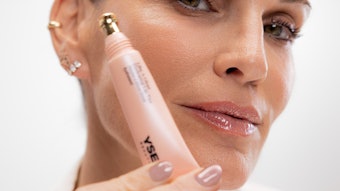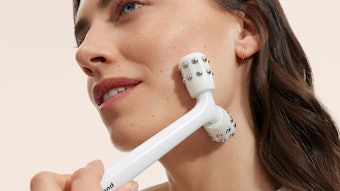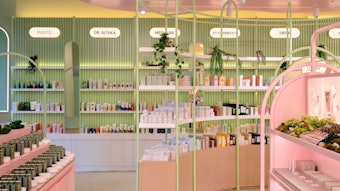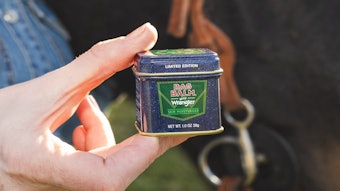New technologies and novel green ingredients are the focal themes of the European edition of the Sustainable Cosmetics Summit. Taking place in Paris November 21–23, the summit—put on by Organic Monitor—comprises a two-day conference program followed by an interactive workshop.
The Summit will look at the impact of new technologies on the sustainable development of the cosmetics industry. Key speakers will discuss the controversy surrounding nanotechnology, biomimicry in cosmetics, novel extraction techniques, the potential of stem cell technology, and advances in biopolymers. The growing influence of mobile devices, social media and e-based distribution models will also be featured.
The Summit begins with a keynote on the growing complexity of the sustainability challenge faced by the beauty industry. Pressure on cosmetic companies is mounting as resources become increasingly scarce and raw material prices rise while retailers and consumers are demanding more transparency. In an industry that has historically received much negative media attention, consumers are increasingly questioning the ethical component of cosmetic products. Claudie Ravel, founder of Guayapi, will discuss methods of improving the social and ethical dimensions of cosmetics. The French brand has set up sustainable sourcing projects for its ingredients in Sri Lanka and the Amazon, adopting fair trade principles and encouraging biodiversity.
With growing pressure on companies to quantify the impact of their environmental initiatives, another paper in the sustainability best-practices session explores the use of life-cycle analysis tools. Laboratories Expanscience describes how CSR can be integrated into supply chains via the ISO 26000 standard. Marks & Spencer, dubbed one of the most ethical retailers in the world, will give insights into how it is meeting the environmental and social challenges. Five years after implementing its Plan A sustainability project, it has become the first major UK retailer to become carbon neutral.
Since innovation in the cosmetic industry is intrinsically linked to product formulations, the search for new ingredients is intensifying. The second session hones in on novel green ingredients, placing particular emphasis on those from marine sources. The first speaker highlights the sustainability issues associated with sourcing from the seas and oceans. Proceeding papers discuss marine ingredient innovations and novel actives from sea algae. OceanBasis will share its experiences in setting up an algae farm for the sustainable cultivation of marine ingredients. The German company recently received the Spa Diamond 2012 award for its natural cosmetics range. Other papers in the novel green ingredients session discuss the use of green chemistry in cosmetic formulations, and developing sustainable ingredients for hair care applications. A paper by Yves Rocher highlights developments in botanical ingredients.
Weak economic conditions and sluggish market growth rates in Europe are leading many cosmetic brands to invest in marketing to raise product sales. The marketing session focuses on major marketing and distribution developments for green (natural and organic) cosmetics. An update is given on the European green cosmetics market, including growth projections and future outlook. Other speakers discuss new technologies in marketing and distribution, such as social media, online retailing, and sustainable communications. Simon Duffy from Bulldog Natural Skincare highlights the importance of customer segmentation for new brands. The UK company is building an international presence with its range of natural male grooming products.
And the final session examines the impact of new technologies on the cosmetics industry. Advances in mobile technology are leading to a plethora of smart phone applications, enabling cosmetic brands to interface directly with consumers. The opening speaker assesses the commercial implications of this development. The opportunities and risks of nanotechnology will be featured in a balanced debate on this emerging technology. Dr. Ian Tooley from Croda will show how nanotechnology can spur innovation by creating new applications for cosmetics, while another speaker highlights the risks of nanoparticles and the need for tight controls. Professor Monique Simmonds from Kew Gardens will state how biomimicry can be a source of inspiration for the cosmetics industry. Advances in sustainable cultivation methods for active ingredients will be covered by two speakers. Fred Zülli from Mibelle Biochemistry will give details of the new PhytoCellTec Concept, recently featured at Rio +20 (Earth Summit). Roberto dal Toso, R&D manager of [Croda-owned] IRB, will explain how plant stem cell technology can be used to extract active ingredients from rare plant species. Another speaker reviews the diverse range of applications of biopolymers in cosmetic products.
Finally, Judi Beerling, head of technical research at Organic Monitor, rounds out the three-day program with a half-day workshop on sustainability and fragrances. The workshop reviews the sustainable fragrance options available to formulators and discusses the related technical problems. Sustainability issues of fragrances like raw material sourcing, certification and industry standards, quality and costs are also on the workshop agenda.
The aim of the Sustainable Cosmetics Summit is to encourage sustainability in the beauty industry by bringing together key stakeholders and debate major sustainability issues in a high-level forum. Learn more about the Sustainable Cosmetics Summit here.










